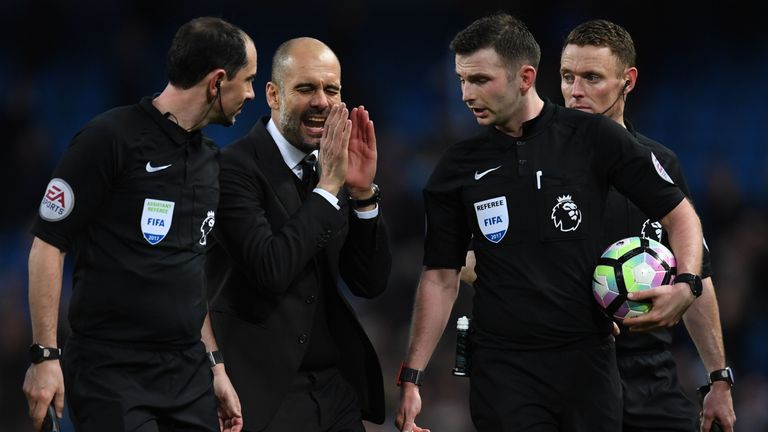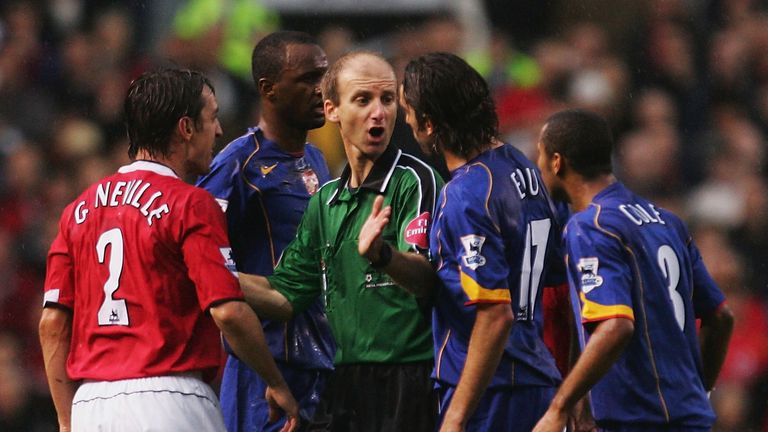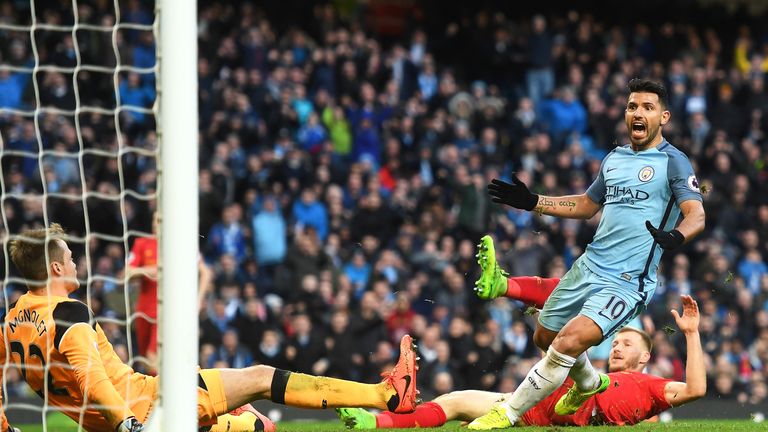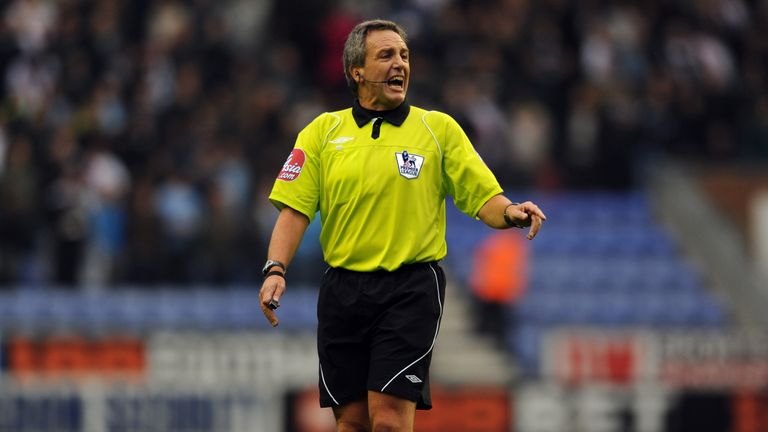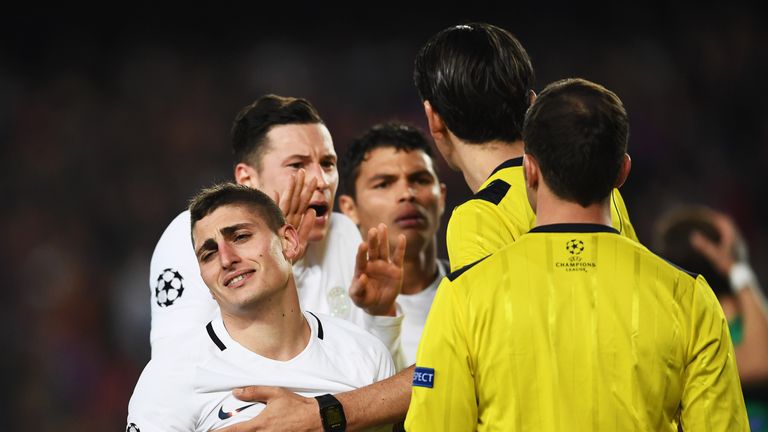Referee myth-busting: How many decisions do officials get right?
Friday 16 March 2018 17:21, UK
"It's a little bit like me advising Lionel Messi on how he can improve his performance and where he went wrong."
That's the view of former referees' chief Keith Hackett on the criticism officials receive from ex-players and pundits.
It is natural for fans, players and managers to fixate on the decisions that cost their side, the penalty that never was and the soft red card at the weekend. But just how many decisions do referees have to make, and how many do they get right? You may be surprised at the findings.
Here, during Sky Sports' Support The Ref Week, we do some myth-busting…
The man in the middle…
According to the PGMO (Professional Game Match Officials) Premier League referee makes around 245 decisions per game, three times more than an average player touches the ball over 90 minutes. That's one decision every 22 seconds.
Approximately 45 of these decisions are technical - whether goal-kicks, corners or throw-ins - leaving around 200 decisions to judging physical contact and disciplinary actions.
Of those 200, around 35 are visible decisions where an action is taken (fouls, restarts), and 165 are non-visible, where play is allowed to continue.
In total, refs make around five errors per game, meaning they are right 98 per cent of the time.
The number of decisions referees have to make has increased by around three per cent in each of the last two seasons, and that is only likely to go up in the coming years as discussion around rule changes intensifies.
Speaking on Sky Sports News HQ, Mike Riley summed it up perfectly.
"By definition, you make a decision and one team is happy, the other team isn't, and so are their supporters," he said.
"All that you ask for is an understanding of the complexity of the job. You see week in, week out that referees make brilliant decisions."
Running the line…
Many supporters would struggle to give the name of a single linesman in the Premier League, but the outcome of a game can hinge on their decisions.
The assistant referee makes on average 50 decisions each game; 45 of these are pure offside judgements, with four of these resulting in offside flags. Their accuracy? Again, a staggering 98 per cent.
Are referees given enough credit? Riley says officials are looking for an understanding and rationality, not praise to high heaven, but acknowledgement of the good decisions as well as the bad ones.
"At the Etihad on Sunday there was an offside decision on the equalising goal. People said it was a really tough call and the assistant referee (Stuart Burt) got it right.
"But because he got it right, the world moves on, and we focus on those they got wrong. We're asking for an understanding."
Keeping up with play…
Sir Alex Ferguson was handed a two-match touchline ban in 2009 for branding referee Alan Wiley "unfit" following a draw against Sunderland.
The refs weren't too happy, and officials' fitness regimes have been widely publicised since.
On average, referees run 11 to 12km each game, around the same as an average Premier League player.
There have also been occasions over previous seasons where referees make on average more sprints (above 20kmph) than players.
Their match performance is monitored continually, and they have formal fitness tests four times a year for the Professional Game Match Officials Limited (PGMOL) and two times a year for UEFA.
Just like players, referees must prepare for the weekend games with a rigorous training regime. A typical week for referees includes a light recovery session the day after a game, and three days of intense sessions before the Saturday game, including weight training, high-intensity work and speed training.
Everything is monitored, reviewed and reported back to the officials, so the Premier League's top refs can be at the top of their game each weekend.
As the game has changed over the last decade, so have the pressures on referees. Refs are making around 70 per cent more sprints now than they were eight seasons ago.
Former Arsenal striker Alan Smith said on SSNHQ that the intensity of the Premier League has increased, and that rationality is key when judging referees.
"It's certainly harder now, because it's so much quicker. I've heard it said this season that it's never been worse, but I wouldn't go along with that. I think we pay too much attention to referees in a way; the decision has been made.
"We've seen clips from the Man City - Liverpool game of players missing open goals. Players make mistakes, everyone makes mistakes, and when a referee makes a mistake it is like the world is coming to an end."
Changing perceptions…
Is being an official the hardest job in football? It is certainly up there with the most thankless.
For days and weeks after a controversial decision, everyone across football has their say. Was it or wasn't it? Should it have been or should it not have been? Despite the hours, replay angles and context available, often these discussions do not result in agreement.
With a target on their back, just seconds to react and all manner of tricks being played on officials by players, that 98 per cent success rate must stick in people's minds.
Video technology could ease the pressure on officials in the future, but for now, an understanding is key.
Upgrade to Sky Sports now and get 12 months for just £18 per month!
